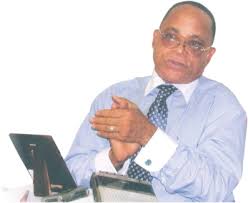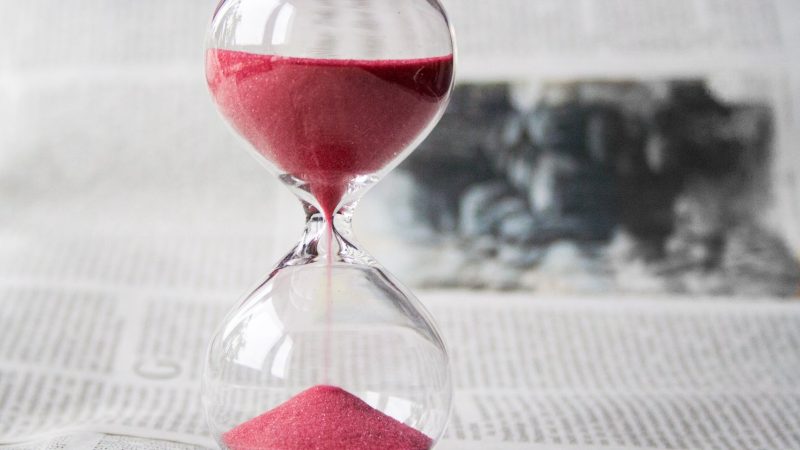EDDIE IROH CONSUMMATE MEDIA GURU

Eddie Iroh is, today, known as a novelist, broadcaster and a veteran in the Nigeria media having transverse the different media platforms – broadcasting, journalism and publishing. But the platform Life gave him as a family is not the kind akin with to becoming an accomplished media guru. “I was born in circumstances that could have provided me a perfect excuse for being an armed robber.” He reveals. Like the title of his popular novel, “Without a Silver Spoon” he was born without a silver spoon. Eddie, grew up in an Igbo village setting under “parents who were materially poor but spiritually and morally wealthy.”
He believes that his parents’ penury was not a disadvantage but an advantage, saying that their wealth of common sense, traditional wisdom and values tremendously shaped him and his siblings’ life in a way that material wealth could not have. Although his parents embraced Christianity later in life their exemplary life of faith in God even in the face of tribulations of life touched his life so much that he once contemplated being a priest.
Like every child, he had his fantasies which one of them is to become UN Secretary General. His fantasies were fueled by how the UN Secretary General were treated then but even in his fantasies he knew deep down in him that he wanted to be a man of letters. In his words, “I thought it would be exciting to be the man who was the world’s number one diplomat as well as public servant. But deep down inside me I knew I wanted to be a writer and journalist.”
He not only wanted to write but started writing in primary four when he had no pen but write with ink squeezed from hibiscus flower into a bottle using a sharp stick. Guess what his first writing was? Letter to his cousin who was in primary six. He relates how he earned the first royalty in this anecdote: “When I was in Primary Four, I wrote a letter to my cousin who was in Primary Six. Interestingly, I didn’t have a pen but we used to squeeze hibiscus flower into a bottle and use a sharpened piece of wood to write. I remember very well that I couldn’t spell ‘no more’, I wrote ‘nomo’. My cousin and his peers were so impressed that they gave me half a penny which could buy me moinmoin at the time. At that age, I earned my first royalty.”
Eddie discovered what he wanted to be and was unrelenting in paying the price of becoming that person. He reveals, “I realised early on in life that, if you must write, you must read. It is impossible to attain any height in creative writing if you do not read, and have not read promiscuously. I read widely and wildly. I had the benefit of the British Council library on Ogui Road, Enugu, then and I lost myself among the vast collection of books, periodicals and newspapers.”
He left Nigeria and lived in the UK for fifteen years until 1999 when former President Olusegun Obasanjo recruited him to join the Federal Radio Corporation of Nigeria (FRCN). According to him, he came to FRCN when it was at it’s lowest state. “The corporation was prostrate. It was derelict and decrepit. Morale was low; equipment was archaic; resources were totally non-existent.” Eddie reveals. But instead of just complain and do nothing like many people do, he resolved and took steps to bring a turnaround in the corporation. For him, he has no direction to go apart from taking the corporation to a higher level adding that it serves for his good. “It was the kind of situation that brings out the best in those who have it in them.” He quipped
In his quest to turn around the FRCN and make it what a standard radio station should look like, he met with stiff opposition from more senior colleague who pointed out that his methods and approaches are not the way they have always done broadcasting. But he bluntly shots back at them: “Well, if the government wanted to do it the way you used to do it, they would not have recruited me all the way from the United Kingdom.” They saw the direction he and his team were headed and believed in his methods and approach when in less than two years of being the herdsman at the FRCN the Commonwealth Broadcasting Association (CBA) gave them an award for innovation in broadcast management.
He was a pioneer staff of the Nigeria Television Authority (NTA) led by Engr Vincent Maduka and recorded good success as the Controller in charge of features. At that time, he was working on Portrait of a Culture, “a documentary series that sought to trace a common cultural and even ethnic lineage among the Nigerian peoples.” During the celebration of 25th anniversary of television broadcasting in Nigeria in 1984, his documentary series was applauded with two awards for best documentary and best directing. He acknowledged that his successes at the NTA were not product if his effort alone but that of a team work, giving credit to his team members. He emphasized “that no single individual can conceive, write, direct, edit, and produce a programme, even if it is 30 seconds. It is always a team effort, and I was blessed to have worked with great professionals like Dan Jacobs, Soji Oyisan, my UK classmate, Sabo Umar, and ace Cameraman, Patrick Afun.”
From NTA, he moved to join the team called Guardian boys to start the Guardian newspaper in 1993. His first assignment was editing the Sunday Magazine which came out as “Television in print” according to one of his friends. From there he rose to become the first Managing Director of the paper. For him the happiest moment at the Guardian was the birth of the first edition. He recollects, “It had kept all of us awake and tense for several days. We had waited, stayed up all night on the D-day waiting for the first print run to come from the Sketch publishing company in Ibadan who were the printers. And seeing that first, mint-fresh copy, with all our articles and contributions was like witnessing the birth of one’s first child.”
While in the UK in 1988, he noticed a growing yearn for information about what is happening in Africa especially among women folks and decide to float a magazine, Chic Magazine, to meet the need. Unfortunately, the magazine, which was his idea, went under after two years of operation because his investor was, in his words, “someone who understood nothing about the gestation period needed for a publishing venture to become viable financially.” He added, “And so a good idea died a mere two years after its launch. It cost me a lot financially, emotionally and professionally.” Though his idea died at birth his joy is that other magazines have come up and are doing what he wanted to do very well. “I am pleased to see that magazines like Ovation and Genevieve have since then come up and succeeded in doing what we had hoped to do with Chic Magazine.” He explained.
His two popular books Without a Silver Spoon and Banana Leaves have been huge success in reach, impact and financial return as they have been recommended readings for secondary schools in Nigeria, South and East African, Russian translation. A cartoon version of Without a Silver Spoon has been produced. He confessed, “The first deposit I paid for my home in the UK in 1986 was from Without a Silver spoon. It sold well abroad, and I got the kind of money that a writer in Nigeria could possibly not get at that time.”
He attribute his success in his career to God not luck. “I don’t believe I’m lucky, I say I am blessed. To come from one little village and reach the pinnacle of my profession, only God could have done it.”
He remarried when his first marriage with an Oyibo woman went under because his father-in-law did not approve of her daughter marrying a black man. Talking about his second wife, he reveals, “She has been able to cope with the stressful demand of running a home and looking after children. She has also shown the kind of strength that I didn’t know she had. She was about 25 then(when they got married). She has also gained by recognising her inner strength.She doesn’t allow anybody to iron her kids’ uniform for her. There are things she doesn’t assign to anybody.”
Eddie gives insight on his life at home: “I come in sometimes to assist her wherever I can. I cook quite often. I enjoy cooking. I take out the garbage.”
He explains why he does that even when ordinarily a man of his caliber would not be expected to do them. “First it supports my family; secondly, it brings out the human side of me. It makes me more human, humane and humble. When you consider that there are people whose job it is to carry out that garbage every day, and put it in the truck and dispose it of. Bringing it out of your house should be a small matter. I think it is much easier to live there if you do not feel like ‘oga’ (big man). When I cook, I serve; I clear up and wash up. When she cooks, I also help. I am happy and I believe she is, in spite of the pressures of life.”
Today, he has gone back to the UK where his family lives and is currently working on a book on which seeks to capture Nigeria from independence to modern times.






